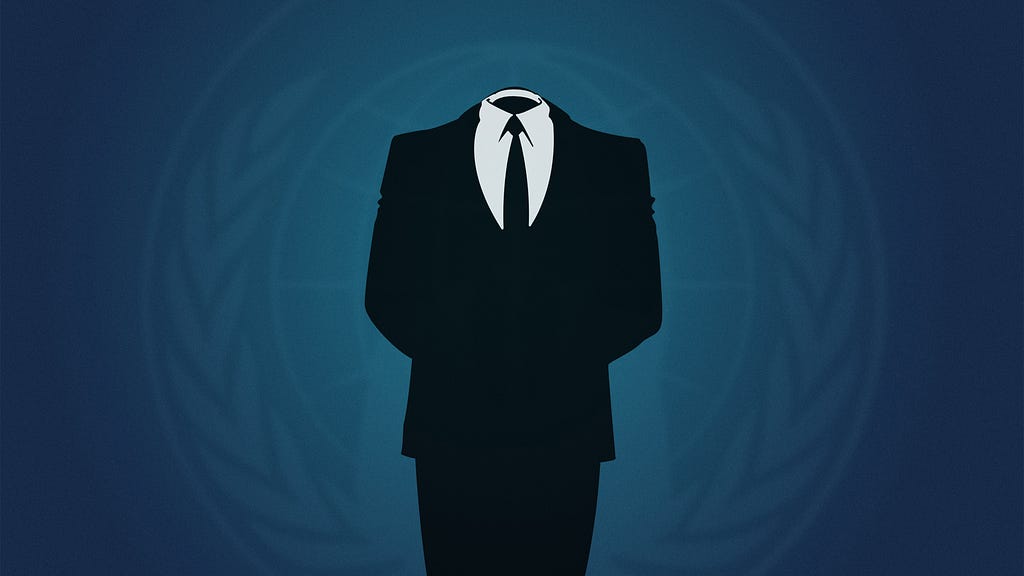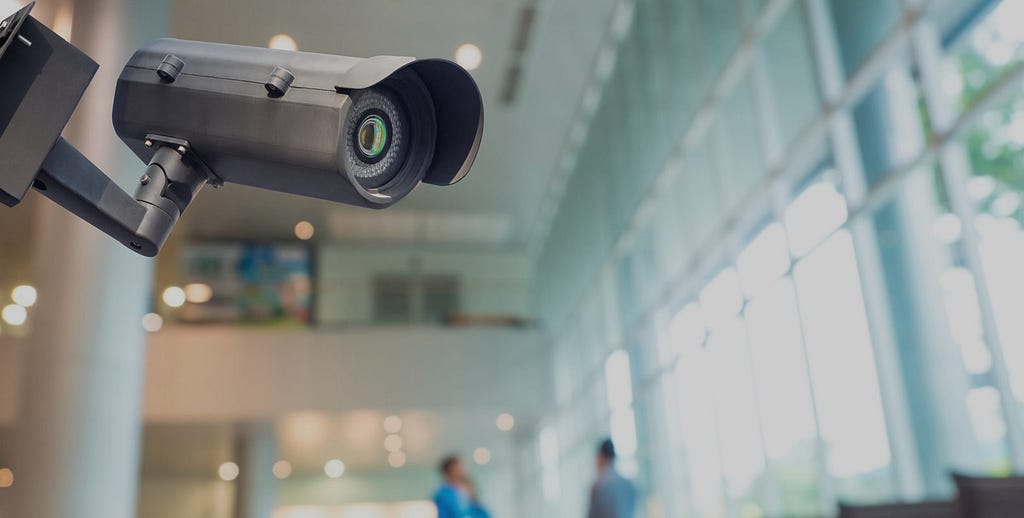Latest news about Bitcoin and all cryptocurrencies. Your daily crypto news habit.
The right to anonymity should become a world standard for ensuring the fundamental rights of a person and citizen in the digital age. First and foremost, this is the right to freedom of expression and the right to privacy.Edward Snowden said:
“Saying that you don’t care about the right to privacy because you have nothing to hide is no different than saying you don’t care about freedom of speech because you have nothing to say. It’s a deeply anti-social principle because rights are not just individual, they’re collective, and what may not have value to you today may have value to an entire population, an entire people, an entire way of life tomorrow. And if you don’t stand up for it, then who will?”
So what exactly is the right to anonymity and privacy in one’s private life, if we are talking about the Internet space?
1. It’s the right to anonymous surfing (searching for information on the web) and the anonymous sending of personal messages (e-mail, instant messages)
An anonymous connection is a primary subjective right necessary for any Internet user. An anonymous connection is considered to be a connection to the destination server where the server is unable to neither establish the origin (IP address/location) of the connection nor assign an identifier to it.Users should be entitled to conduct anonymous searches for information on the Internet, including hiding their IP addresses and sending messages anonymously. In the fall of 2016, the European Court of Justice considered a request from the German Federal Court related to a claim of a representative of the German Pirate Party against the federal government. The complaint was filed by a German citizen regarding the storage of dynamic IP addresses on government sites after a user leaves the site. The European Court, in its decision, recognized dynamic addresses (as it had done previously with static addresses) as personal data and indicated that operators do not have the right to save dynamic IP addresses unless it is done to protect against cyber-attacks.
2. The right to anonymous payments (including the use of cryptocurrencies)
A citizen should have the right to legally transfer funds to another person anonymously.
It is also generally accepted that charity should be anonymous. Charitable organizations or individuals can have various reasons for wanting to maintain anonymity: the desire not to disclose their financial condition, or the unwillingness to have expressions of gratitude specifically targeted or personified, etc.
3. The right to the anonymous creation and distribution of content
Author’s right to use a name provides the right to use, or authorize the use of a work under his or her own name, under an assumed name (pseudonym) or without a name, that is, anonymously. A similar provision is also contained in the Berne Convention, which states that the copyright of a work published anonymously or under a pseudonym is valid for 50 years after the date of its legitimate manifestation.
Instruments which help to protect anonymity
Tor (The Onion Router) is open source software that allows one to establish an anonymous network connection using a proxy server system. The use of this technology forms an anonymous network, within which data transfer occurs in an encrypted form (data packets are encrypted in three stages, during the transition to each new node), thus ensuring the confidentiality of data transmission and network connections
UltraUpload from startup Snowden-Coin, contributes to privacy by creating an anonymous and decentralized IPFS-based P2P file-sharing network. The network will allow people to move any databases to blockchain, which cannot be influenced or affected, even by governments. Also, this network will allow anyone to anonymously download and distribute any data for free, or they can assign a fee for downloading.
A VPN (Virtual Private Network) is a technology that allows for the creation of a secure network or a tunnel within an unsecured Internet. A VPN is a tunnel from the VPN client installed on the user’s computer and the VPN server. Within this tunnel, VPN technology allows you to protect, encrypt, and change data that is exchanged between the user’s computer and websites or web services on the Internet.
Veil is a tool created at MIT which is designed to ensure anonymity when working on public computers. The tool can also be used in incognito mode and with Tor as an additional level of protection. Veil encrypts a site before it is displayed on the screen, regardless of the browser used. The user enters the desired URL not in the browser line, but in the address bar on the Veil website. The Veil-version of the site looks no different from the original, but the page will be embedded with an encryption algorithm.
I2P — Anonymous overlay network. The project started with the goal of creating an anonymous computer network which runs on top of the Internet. An I2P network is overlaid (that is, runs on top of another network — the Internet), stable (disabling a node will not affect the functioning of the network), and anonymous (it is impossible or difficult to determine the IP address of a node). Encryption is used when transferring data between network nodes. You can place any service (or service type) (forum, blog, file sharing, email, instant messaging system (chat), file sharing system, VoIP, etc.) inside the I2P network while keeping the server anonymous.
It is worth noting that the right to anonymity is not directly enshrined in any international documents subject to mandatory execution by nation states, and can still only claim the recommendations of independent international organizations (primarily the UN) and stakeholders, as well as developed judicial practice. At the same time, in 2016, an expanded resolution on “on-line rights” was adopted by the UN Human Rights Council. In the final resolution, the UN General Assembly called on countries:
“… to review their procedures, practices and legislation relating to the perusal of correspondence, as well as the interception and collection of personal information, including the practice of mass surveillance, in order to protect the right to privacy.”
In the United States, the right to an anonymous opinion is protected by the First Amendment, and the necessity of protecting it has been repeatedly recognized by the Supreme Court. In the Council of Europe and the European Union, a specific legal position with regard to the right to anonymity was also developed. For example, in May 2003, the Committee of Ministers of the Council of Europe adopted a declaration on freedom of communication and the Internet.
Paragraph 7 of the document provides that:
“To ensure protection against on-line surveillance and to increase the free expression of information and ideas, Member States must respect the desire of Internet users not to disclose their identities. This does not prevent the members of the Union from taking measures and coordinating their actions in order to trace persons involved in criminal activities in accordance with national legislation and the Convention on the Protection of Human Rights and Fundamental Freedoms, as well as international treaties in the field of justice and national policy.”
In judicial practice, the ECHR (case K.U. v Finland, Appl. №2872 / 02 of December 02, 2008, Delfi v Estonia, Appl. №64569 / 09 dated October 10, 2013) has also repeatedly recognized the importance of anonymity for the rights to freedom of expression and privacy. At the same time, the court clarified that anonymity cannot be absolute and can be limited to protect other interests, especially the protection of vulnerable groups:
“Anonymity and confidentiality on the Internet should not encourage states to refuse to protect the rights of potential victims of criminal acts committed on the Internet. Although freedom of expression and confidentiality of communications are primary considerations, and telecommunications and Internet service users should be guaranteed that their personal integrity and freedom of expression will be respected, such a guarantee cannot be absolute, and must sometimes obey other legitimate imperatives, such as preventing unrest or crimes or the protection of the rights and freedoms of others.”
In 2015, the UN Special Spokesperson David Kay, in his report on the promotion and protection of the right to freedom of opinion and expression in the digital age, emphasized the important role of using encryption and anonymity to protect and strengthen freedom of expression.In the area of social networking, anonymity has also become an important standard, having claimed to become a regular part of a business’s turnover. For example, Facebook at one time rejected the “real-name policy” it had developed after a mass public protest. The world’s largest social network also took another very interesting step — it opened its representative office in the anonymous Tor network, thereby instilling in its users an interest in network tools that increase the protection of personal data.
You Have the Right to Anonymity was originally published in Hacker Noon on Medium, where people are continuing the conversation by highlighting and responding to this story.
Disclaimer
The views and opinions expressed in this article are solely those of the authors and do not reflect the views of Bitcoin Insider. Every investment and trading move involves risk - this is especially true for cryptocurrencies given their volatility. We strongly advise our readers to conduct their own research when making a decision.

